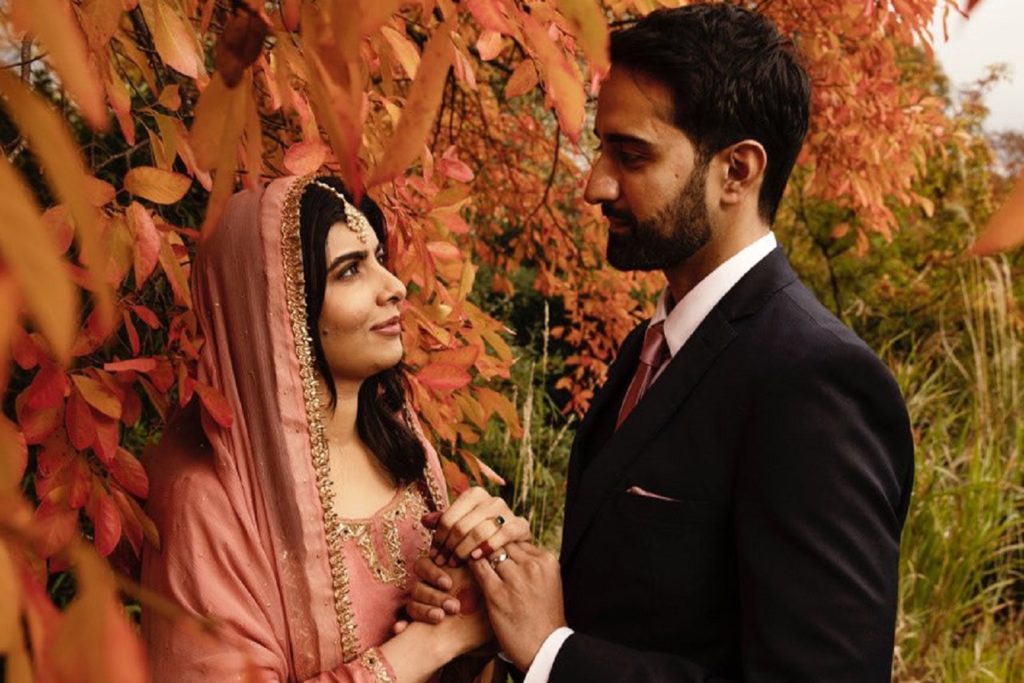Human rights activist and Nobel Peace Prize laureate, Malala Yousafzai has married her partner Asser Malik in a small ceremony at her home in Birmingham.
“Today marks a precious day in my life,” she shared. “Asser and I tied the knot to be partners for life.”
“We celebrated a small nikkah ceremony at home in Birmingham with our families. Please send us your prayers. We are excited to walk together for the journey ahead.”
Today marks a precious day in my life.
— Malala (@Malala) November 9, 2021
Asser and I tied the knot to be partners for life. We celebrated a small nikkah ceremony at home in Birmingham with our families. Please send us your prayers. We are excited to walk together for the journey ahead.
📸: @malinfezehai pic.twitter.com/SNRgm3ufWP
The 24-year-old, who survived being shot by the Taliban at age 15 in Pakistan, now lives in the United Kingdom and recently graduated with a degree in philosophy, politics and economics from Oxford University.
In 2014, at 17 years old, Yousafzai became the youngest person to win the Nobel Peace Prize, exactly two years after she was targeted by the Taliban for her campaigning efforts for girls’ education.
Malala came to worldwide attention when she was attacked by a Taliban gunman in Pakistan, who shot at her at close range on a school bus after identifying her. The Taliban had orchestrated the attack on her, after threatening her and her father for their public support of girls’ rights to education. Against the odds, she survived the attack and spent nearly 6 months in hospital, undergoing multiple operations.
In accepting her Nobel Peace Prize, Yousafzai said: “This award is not just for me. It is for those forgotten children who want education. It is for those frightened children who want peace. It is for those voiceless children who want change.”
“I am here to stand up for their rights, to raise their voice.”
Yousafzai has become a global symbol of defiance against military rule and an activist for women’s and girls rights. Her book, I Am Malala, became an international bestseller.
This year, she has spoken about her fears for women and girls in Afghanistan, urging the world to listen and respond to their needs.
“We will have time to debate what went wrong in the war in Afghanistan, but in this critical moment we must listen to the voices of Afghan women and girls. They are asking for protection, for education, for the freedom and the future they were promised. We cannot continue to fail them. We have no time to spare,” she wrote.
Above image: Malin Fezehai

